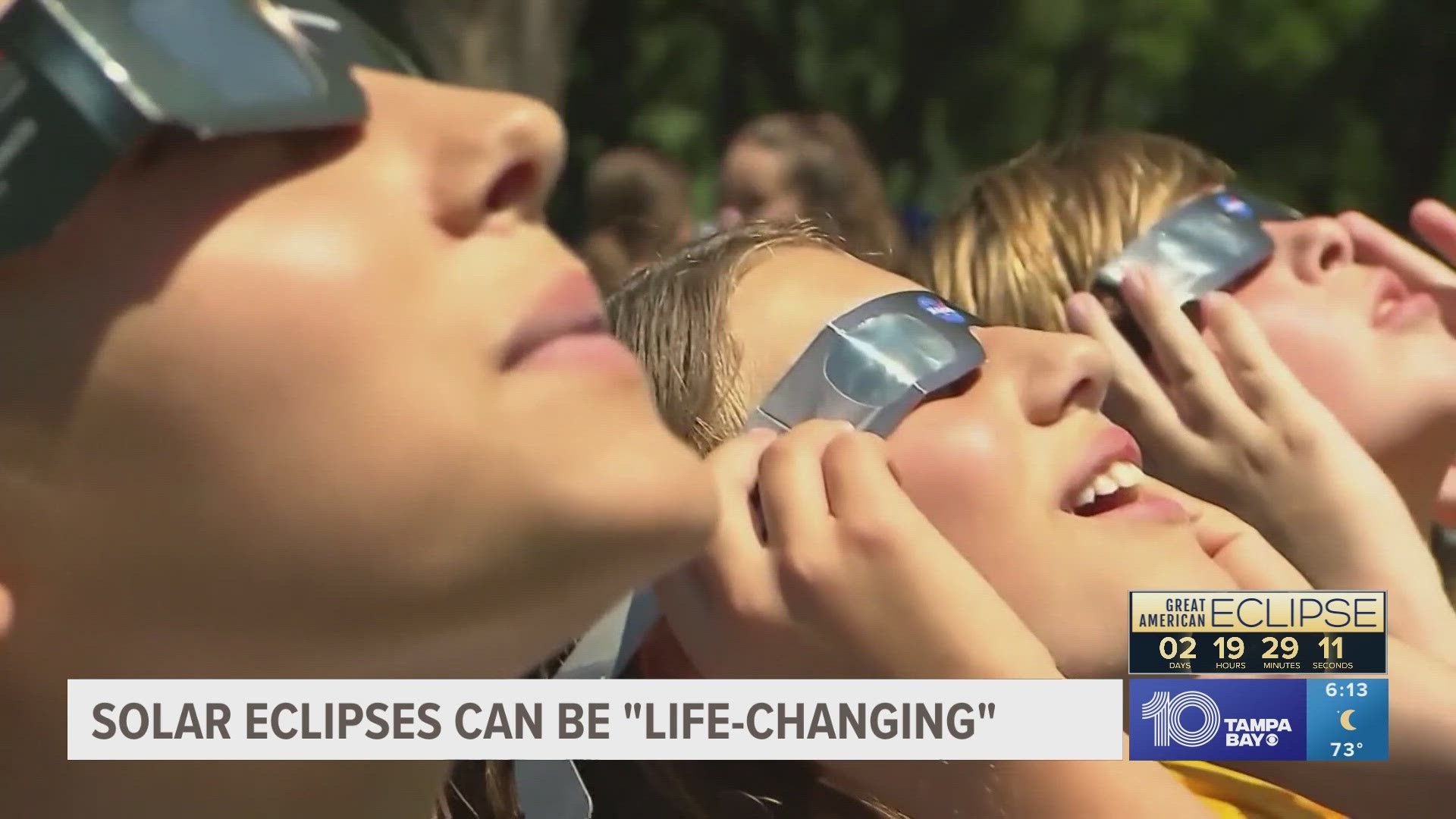TAMPA, Fla. — For thousands of years, people have been looking up in awe, documenting solar eclipses through history. Since then, our understanding of what happens when darkness falls and daylight disappears has evolved, including what we know about the profound, beneficial impact it can have on your psyche.
“It actually creates a different framework for thinking about yourself,” Dr. Jennifer Bosson, a psychology professor at the University of South Florida, said. “The experience people have when they witness these kinds of events is that you're confronted in a very visceral and salient way with the awesomeness and the vastness of nature.”
Not that it makes you feel unimportant, Bosson says, but it “diminishes your sense of yourself being all important and that makes you feel more connected to things, it makes you feel more connected to nature. It makes you feel more connected to other people.
That’s why it’s no coincidence that over decades those who witness awe-inspiring events like a rare solar eclipse often describe it as “life-changing.”
“It can kind of create this other-oriented mindset where you are more pro-social, you're more generous toward others, you're more focused on kind of easing other people's pain,” Bosson said. “Being focused on how can you help other people can actually reduce depression and anxiety.”
“When you have some sort of an event like a solar eclipse, something unusual, something that's dramatic unfolding right before your eyes. What that can cause to happen is you shift focus from all of those future-oriented worries and instead, you focus on the present,” USF Psychology professor Dr. Jay Michaels explained.
Eleven states will be in the path of totality on Monday; others like us here in the Tampa Bay area will see a partial eclipse. Still, it's an opportunity that doesn’t come around regularly — all the more reason to savor the moment.
“Researchers have demonstrated now for many years from different empirical studies, that when people tend to have more amplifying savoring experiences, they tend to experience more happiness as well as more subjective life satisfaction,” Michaels explained.
That satisfaction doesn’t just end when the moon passes by, “When people engage in nostalgia and they think back, they could actually cultivate some of those same emotions,’ adds Michaels who suggests viewers really take in the moment on Monday.
“Go ahead and get that selfie to put up on your social media, maybe get a quick little video clip, but take a few moments to disconnect and actually just experience the sights, the sounds, as well as the collective social experience of the people around you. And that'll make it something ultimately more memorable for you.”
And it could even change your life.
"When people feel as though there is something existential, something greater than them, this can often bring a sense of meaning, a sense of comfort, and a sense of satisfaction in life," Michaels said.

